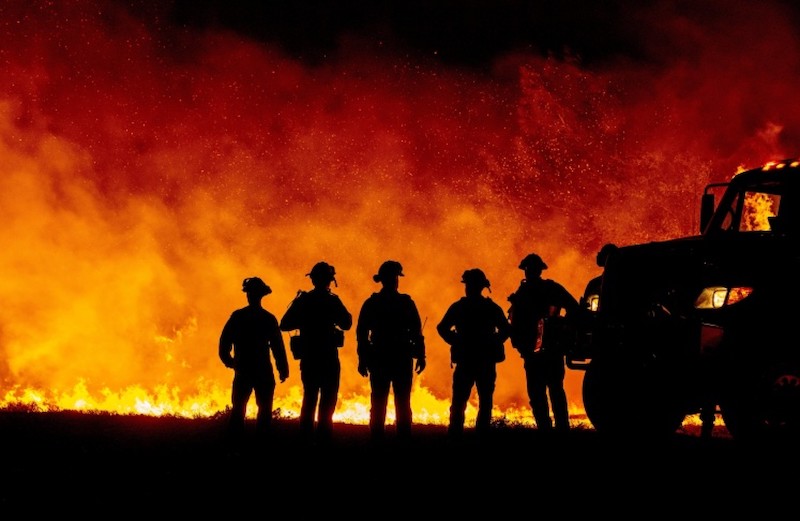I came across a fascinating snippet that concerns the vaccine uptake amongst LA firefighters. In one specific instance I came across a tactic that turned out to be highly effective.
I’ve extracted what follows from a story titled “Many Firefighters Are Still Declining The Vaccine As A Brutal Fire Season Looms“. It was published April 12, 2021
The Nudge
First as a bit of background context …
…Last fall, L.A. County Fire and the UCLA Fielding School of Public Health surveyed the organization’s 4,900 employees and found that roughly 45% of them didn’t want to get the vaccine. That was similar to nationwide numbers from around that time….
It sounds shocking that as many as 45% are saying no, but you do need to remember that vaccines have become politicised and so refusal has for some become part of their political identity.
When faced with all of that, most of the usual encouragement was deployed …
L.A. County’s Kazan and his colleagues knew that if they wanted to convince their people to get protected they had to break through the misinformation.
They needed to be clear about what the science said and to push back against spurious claims, while keeping an open, non-judgemental dialogue with those who were willing to talk about their concerns.
“We were all over them from about the end of November on, about explaining the science, answering questions, doing live Q&A … and putting out videos and linking to things and trying to compete against the noise of some of these social media rabbit holes,” said Kazan.
Besides the barrage of information, they settled on one other idea as well….
… and here it comes, this is the gem I am pulling out to highlight …
If a firefighter wanted to refuse the vaccine, L.A. County Fire made it so they couldn’t just not show up, or casually check off a box online. The firefighters instead would have to leave the bubble of their fire house, drive to a vaccination site, and decline in person.
“If you’re sitting at a station with five people who are all kind of grumpy and don’t want to get it, it’s a lot easier to say no than when you have to show up to an area where you see your friends stepping up and taking it. And now you have a chance to ask your questions. And maybe you’ll just kind of roll your eyes and roll up your sleeve,” said Kazan.
That approach is “brilliant,” said Alison Buttenheim, who studies vaccine acceptance at the University of Pennsylvania School of Nursing.
“There’s at least two things going on there,” she said.
They’ve “reframed the default as everyone’s going to get vaccinated, and choosing to do something else actually requires additional effort. Now the easiest thing to do is just to show up and get vaccinated,” Buttenheim said.
And then there’s the added social pressure of having to publicly show your peers at the vaccination site that you’re doing something different from them.
“We not only don’t want to be different, but when we have a new decision … or a decision where we’re really info overloaded, one of the shortcuts we take is just to look around and see what everybody else is doing. That’s one of the ways we make it easier on ourselves to make a decision,” she said.
Net effect, they got 70% uptake of vaccines vs the more usual 50% that others got not doing this.
If being passive means no vaccine to being active means getting one is simply switched around so that being passive means you get it, but an active refusal means you don’t then the uptake jumps, not just by a few points, but dramatically.
Note also, it was not mandated. Those that wanted to could still refuse.
The decisive point is rapidly coming. That is the point when the supply of vaccines exceeds the demand and so we have reached a point when those that are yet to get the vaccine are doing so because they have refused it.
We rather obviously need as many as possible to take the vaccine, so anything we can do to increase the uptake brings us closer to getting back to normal. It can perhaps be achieved via some cleaver bits of social engineering that makes it very easy to get the vaccine and a bit harder to refuse.
One last thought.
The full article is worth a read. It starts out with a guy who steadfastly refused the vaccine, but then later changes his mind, gets it. The article also explains why he changed his mind.
One last observation, shortly after getting the vaccine he got COVID. He reckoned that because of his pre-existing condition he would have died if he had continued to refuse, accepting it saved his life.
